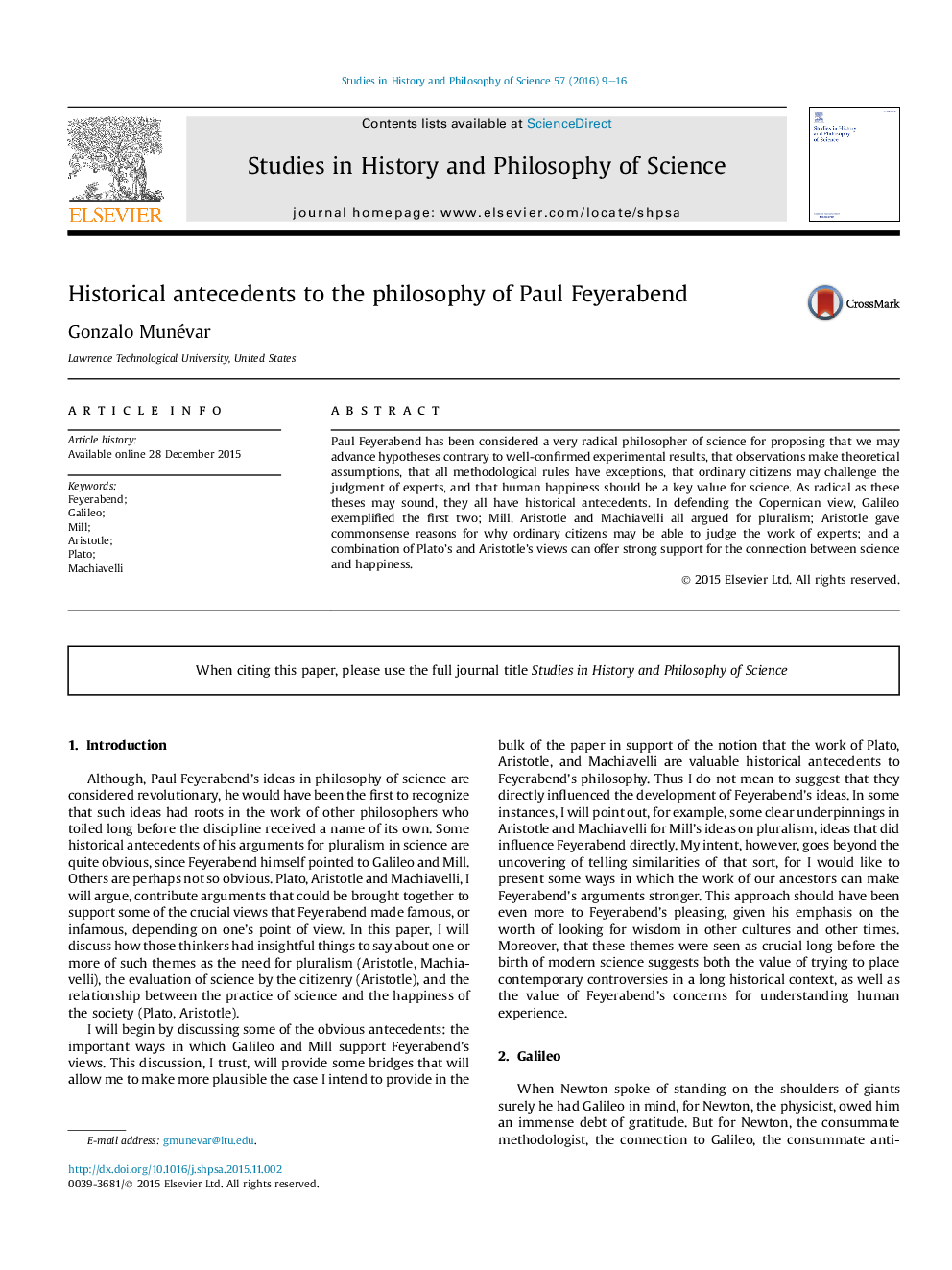| Article ID | Journal | Published Year | Pages | File Type |
|---|---|---|---|---|
| 1160260 | Studies in History and Philosophy of Science Part A | 2016 | 8 Pages |
Paul Feyerabend has been considered a very radical philosopher of science for proposing that we may advance hypotheses contrary to well-confirmed experimental results, that observations make theoretical assumptions, that all methodological rules have exceptions, that ordinary citizens may challenge the judgment of experts, and that human happiness should be a key value for science. As radical as these theses may sound, they all have historical antecedents. In defending the Copernican view, Galileo exemplified the first two; Mill, Aristotle and Machiavelli all argued for pluralism; Aristotle gave commonsense reasons for why ordinary citizens may be able to judge the work of experts; and a combination of Plato's and Aristotle's views can offer strong support for the connection between science and happiness.
